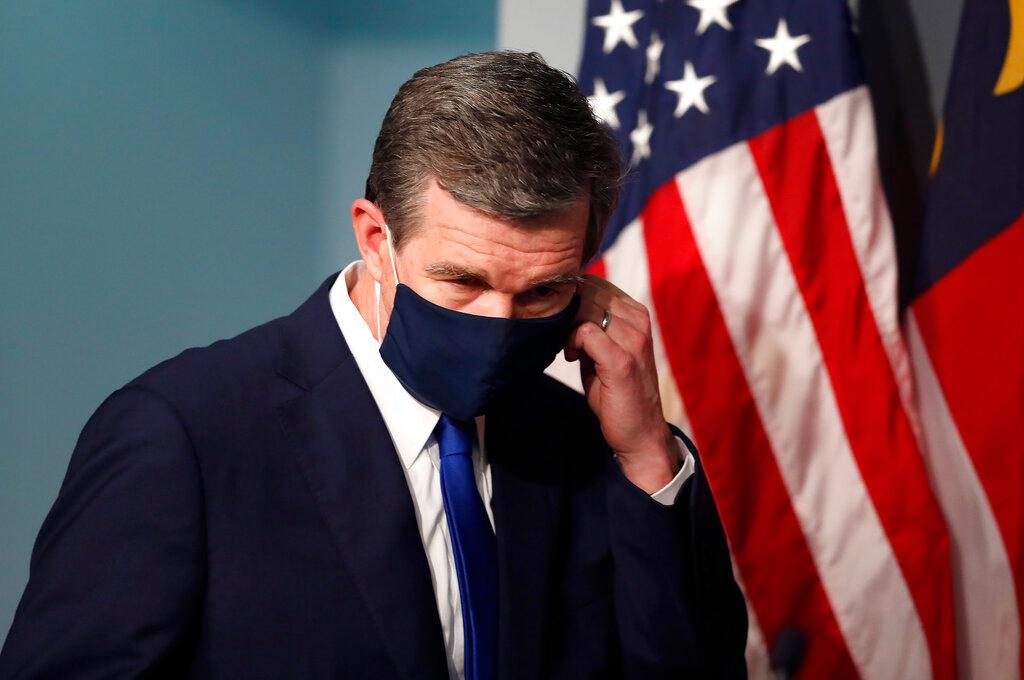North Carolina Gov. Roy Cooper vetoed on Feb. 24 Senate Bill 173—the Free the Smiles Act—which would have given parents discernment on masking their children in K-12 public school.
The decision comes a week after he encouraged local school boards to lift their mask mandates; however, Cooper said he wants the school boards to retain the authority to mandate masks in public schools if they choose.





